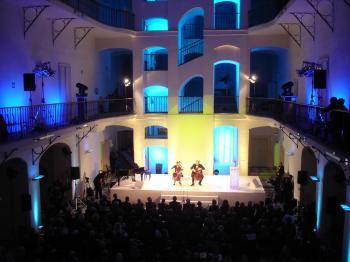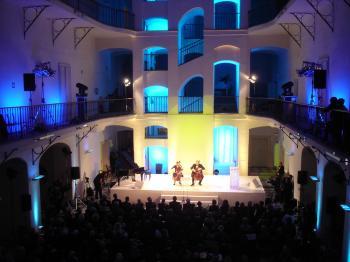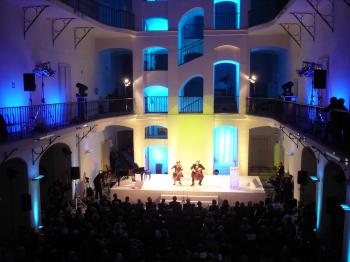Cello Duo Revives Compositions of Holocaust Victims
“Duo Brikcius—2 Cellos Tour” holds a series of concerts in the Czech Republic.

IN CONCERT: 'Duo Brikcius— 2 Cellos Tour' playing at the Czech Museum of Music in Prague. Courtesy of František Brikcius
|Updated:







